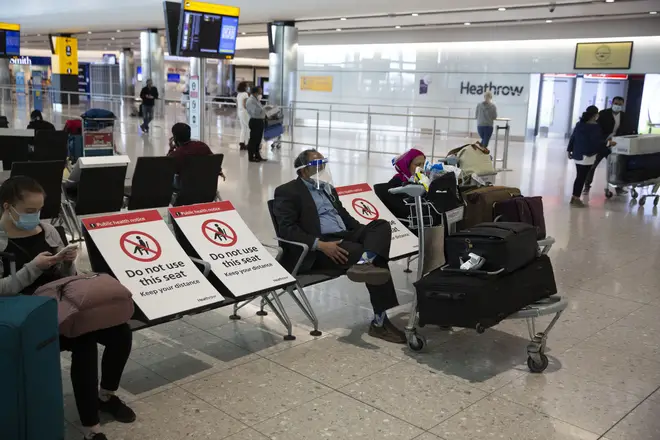
Matthew Wright 7am - 10am
8 June 2020, 18:32

Lucy Moreton, spokesperson for the Immigration Service Union
Police services may not have the capacity to enforce the UK's 14 day quarantine system, with "vaguely plausible" addresses being suitable for filling out forms.
Lucy Moreton is the spokesperson for the Immigration Service Union and she joined Eddie Mair to speak about the UK's new system of quarantining air passengers on arrival into the country. Through her description of the system, it became apparent that the plans aren't solid and are prone to abuse.
Ms Moreton told Eddie that the system "seems to be going reasonably well at the moment" when asked about the first day of working the policies. Eddie wanted to hear about the specifics of the new 14 day quarantine legislation and asked for a run through of how it would work.
Ms Moreton told him that "48 hours before you travel" you should fill in an online form where you list the residence you plan to spend your fortnight in self-isolation and a phone number to be contacted by contact tracers.
The spokesperson noted that there is "nothing to stop you travelling if you haven't filled it in" and only "roughly 10% of people will be asked" to produce their form upon arrival into the country.

She went on to tell Eddie that so long as the address provided is "vaguely plausible" you will not be quizzed any further on your stay in England. She added that if you are stopped you will be provided with a tablet to fill in your quarantine plans.
Eddie was curious to find out how much checking is done after one leaves the airport. Ms Moreton noted that "as long as the address you've given is within England" contact tracers will be in touch who will confirm whether you are staying where you said you would be.
"If they're satisfied that you're where you're supposed to be that is the end of it" she said, but added that if there are suspicions that you aren't, then contact tracers are "able to pass details to the police."
She lowered worries around the system even further when noting that it would be very unlikely for a person to be contacted by the police in these situations as "largely they do have better things to do."
Listen & subscribe: Global Player | Apple Podcasts | Google Podcasts | Spotify